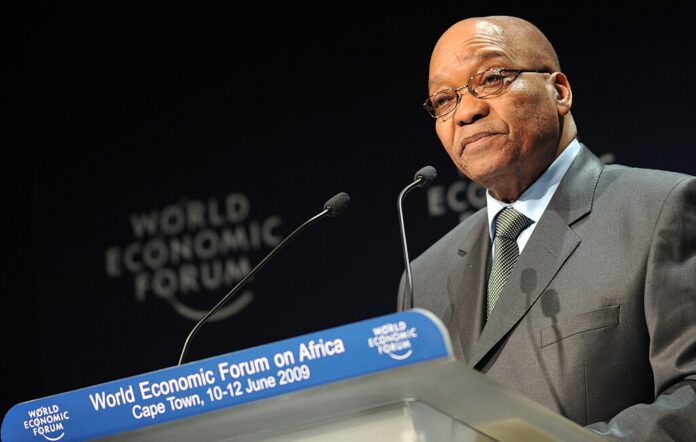Former President Jacob Zuma’s MK Party protests election integrity, marches to court over fraud claims
In Pietermaritzburg, a significant gathering of about 200 members from the MK Party congregated in the city centre on Wednesday morning. Their purpose was clear: to protest what they assert was widespread fraud and manipulation in the recent elections. Led by former president Jacob Zuma, the MK Party has been vocal since the May 29 polls, where they unexpectedly secured seats in the National Assembly.
Following the announcement of election results, which saw the MK Party win 58 parliamentary seats, the party immediately voiced accusations against the Electoral Commission of South Africa (IEC), alleging that the process was marred by rigging and irregularities. This outcry led to the party boycotting the initial session of the National Assembly, where their elected MPs were set to be sworn in.
Embed from Getty ImagesHowever, on Tuesday, the MK Party’s elected members, including notable figures like impeached former Western Cape judge president John Hlophe, former EFF member Andile Mngxitama, former co-operative governance minister Des van Rooyen, and Zuma’s daughter Duduzile Zuma-Sambudla, eventually took their oaths.
Today’s march to the high court marks a pivotal moment for the MK Party as they pursue legal action. Their application to the Electoral Court seeks to challenge the legitimacy of the election results, emphasizing alleged acts of fraud and manipulation. This legal manoeuvre underscores the party’s determination to seek redress through judicial channels amidst ongoing political tensions.
Analysis
Political Perspective: From a political standpoint, the MK Party’s protest and subsequent legal challenge signal a significant challenge to the credibility of South Africa’s electoral process. By contesting the election results, the party not only seeks to delegitimize the current administration but also aims to bolster its standing as a political force capable of challenging established norms and institutions.
Social Implications: Socially, the MK Party’s allegations of vote-rigging resonate with broader societal concerns about transparency and fairness in governance. The public outcry reflects deep-seated anxieties among citizens regarding the integrity of electoral practices, sparking discussions about electoral reform and the accountability of electoral bodies.
Racial Dynamics: In terms of race, the MK Party’s actions intersect with South Africa’s complex racial dynamics. While race may not be explicitly at the forefront of this protest, the party’s leadership and its supporters represent diverse racial backgrounds, highlighting how political disputes can resonate across racial lines in a country with a history of racial inequality and struggle.
Gender Considerations: Regarding gender, the MK Party’s leadership composition, including prominent female figures like Duduzile Zuma-Sambudla, brings attention to the evolving role of women in South African politics. The inclusion of women in leadership positions within the party reflects ongoing efforts towards gender parity and empowerment in political decision-making processes.
Economic Impact: Economically, the political instability resulting from electoral disputes can have far-reaching consequences. Uncertainty surrounding election outcomes and potential legal battles may undermine investor confidence and hinder economic stability, posing challenges for ongoing economic recovery efforts in South Africa.
